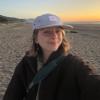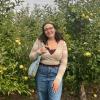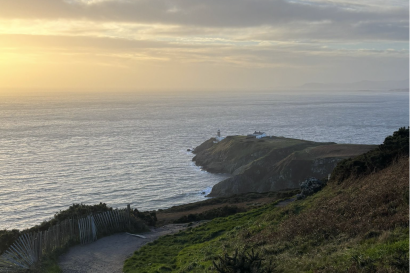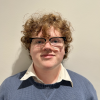I take a labored breath in, and decided I’ve had my fill. The past week my throat had been constricting, tighter and tighter. Within the pasts two days, a deep weight settled on my chest. A strange, unknown type of pain that I couldn’t ignore. I needed to go to the hospital.
The problem was, I was in Turkey, at the beginning of a weeklong trip around eastern Europe. My international insurance had run out with the end of my abroad program, and the possibility of an English-speaking doctor was scarce.
Asking for help isn’t particularly my strong suit, as my stubborn pride oftentimes keeps me locked in my own head. So with gritted teeth, I asked a bartender at my hostel where I could find an English speaking hospital. With those few words, I began the slow tumbling decent of an avalanche. He dials up what seems to be 20 hospitals in the area, feverishly searching for one that speaks English and one that won’t bankrupt my already dwindling bank account.
“I found one”, he says, “they don’t speak English, but we will drive you there and translate for you."
I stared, not quite understanding. These people were utter strangers, they owed me nothing more than the 20 euro bed I had purchased in their hostel. I tried to protest, to act as if I’d be fine, but I knew I wasn’t. A bit shell shocked, I sat in their car as one of the hotel staff drove me to the hospital.
The hospital was small, with one doctor, a few nurses, and limited facilities. But the crowd there was excessive. All the chairs were full, and most visitors had an IV tube sticking out of the crease in their elbow. I gulped, pushing down the intense panic that tends to rise when I get near needles.
The hostel worker navigated me through a few rooms, a few lines of paperwork, and finally to the doctor, who spoke some English. It was decided that I’d get steroids and then go. Perfect, I thought. No needles, no extended time in this hospital. I was already growing self-conscious from the excessive stares of contempt I received from strangers. My short blonde hair and thin short sleeve shirt contrasted against the hijabs and long sleeves of the mostly-female hospital waiting population.
I was instructed to sit down in a chair next to a nursing station. Weird, I thought to myself, why do I need to sit if I’m just getting a prescription. And then she pulled out an IV. That was it. I was done.
“No," I said calmly. “I don’t want that.” Then looking to the hostel worker, I suggested that he translated. They both stared at me with confusion. “The doctor ordered it,” he said. “You’ll feel better.” Panic welled in my throat, caught in my tear ducts, suctioned my feet to the floor. “No… please no” I stammered. My fear of needles stems back to my last few months of first grade, where I was operated on, scanned, poked, and drained of endless vials of blood as doctors puzzled over a tumor in my leg. Cancer or no cancer, was the question. The verdict was benign, and I continued on with my life, but my fear of hospitals and needles had stuck.
After a few minutes of this back and forth, the nurse looked at me. Her eyes were wide and sympathetic. In what few English words she knew, she attempted to tell me about her sister, who taught English somewhere. She told me her name. Told me I’d be ok. At this point a crowd had gathered. There were no separate rooms, only curtains, which were typically left wide open. A group of Turkish people stared at me with the same watchful curiosity present when one is binging a Netflix crime show.
Before I can stop it, a sob escapes my lips. I’m shaking, panicking, gasping for breath. I don’t speak this language, I don’t know these people, and the hospital air is stingy and smells of sickness. I feel violated, unsafe, confused. Then a woman inches closer and grabs my hand. She smiles, points to her own IV nestled securely in her arm and gives me a thumbs-up. Another woman, who had previously been grimacing at me with intense disgust, now wears the stern face of a mother. She motions that I turn my head to the wall, away from the needle, and scolds me until I do. The nurse grasps my hand again, and between my full body sobs she manages to insert the IV.
The next nine hours consist of similar instances, as the doctor demands more tests with a worried demeanor. These hours are full of 2 IV’s, 3 nebulizers, 1 chest x-ray, 3 EKGs, 7 vials of blood, more panic attacks than I can count, and an array of false diagnoses from the overworked doctor who only half understands my symptoms. “We’re going to take more blood,” he would say on each of my many visits back to him. Heart disease. Blood clots. Pulmonary embolism. Each diagnosis was thrown out with ease, as he proceeded to google my symptoms, prick me for blood, and demand that I stop crying.
It was 4am by the time we finally got back to the hostel. I was born on this day, 21 years ago, at exactly this time. It was of the upmost irony that I spent this important day in a hospital, just as I had 21 years ago. By this point I was recommended to see a cardiologist immediately, as the doctor was still unsure what was wrong with me. I was exhausted and petrified. I’d already called my friends and family, told them I loved them, and warned them that I may be grasped by death at any moment. Although deep down I knew the possibility of death was a bit farfetched, it felt too close, the pain in my chest increasing with time and stress. Between my labored breathing, my aunt managed to convince me to come home early. I dutifully obliged, and learned that although traveling is glorious, being healthy in a country in which I have insurance was essential.
I was devastated to leave Turkey early, to give up my travels in Greece and Malta. But I was also overwhelmed with the amount of kindness I had been met with during this time of pure horror. Throughout the nine hours of my stay, I ran into a few of the same Turkish women. We always exchanged smiles, waves, and solidarity. I was overwhelmed with how much work the doctors and nurses do, as I’d seen them constantly racing back and forth for the entirety of the night. Yet each time they saw me, I was greeted with a reassuring and genuine smile. I was most in awe with my hostel worker. He’d stayed by my side the entire time, cracking jokes that made my sobs morph into strangled laughs, asking about my life and sharing portions of his, and driving me to and from the hostel as we awaited test results. I was (and always am) beyond grateful for my aunt and uncle, who’d without question purchased a next day plane ticket home for me, demanding that I not worry about the money. Without them, I wouldn’t have been able to get home, and to be properly diagnosed with a rare form of pneumonia. I’m now correctly medicated and have been improving slowly over time.
As I think back to that night in the hospital, my mind is not full of fear or regret. I am enveloped with a sense of wonder. That humans who I don’t know, whose language I don’t speak, and whose culture I am mostly ignorant to, were there for me in my greatest time of need. Despite all of the chaos of the hospital visit, I’m grateful for it. Without those grueling 9 hours, I’d never know the depth of Turkish kindness. I have fallen intensely in love with Turkey, and I truly hope to return sooner than later. Because of that one Turkish hospital, I learned the power of kindness can transcend even the most terrifying experience. I’m eternally grateful for that lesson, no matter the cost.

Emily Radford
<p>I’m studying psychology and gender studies at the University of Rochester. I just came back from studying in Quito, Ecuador for a semester and this spring semester I will be studying in Amsterdam, Netherlands. I feel most at home when I’m backpacking and climbing mountains, I’m a lover of pancakes and language, and I’m skilled at sleeping on all forms of public transport.</p>









